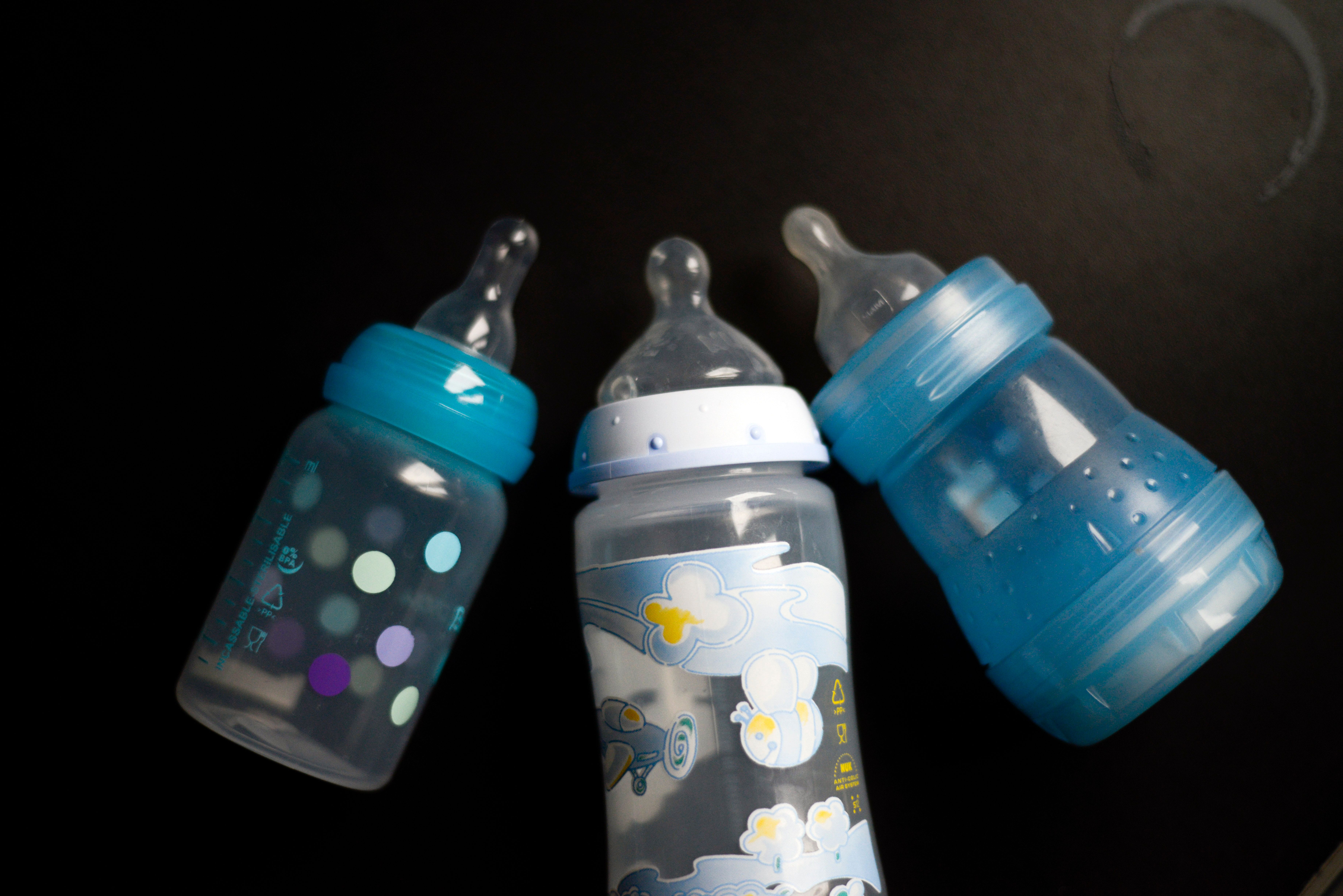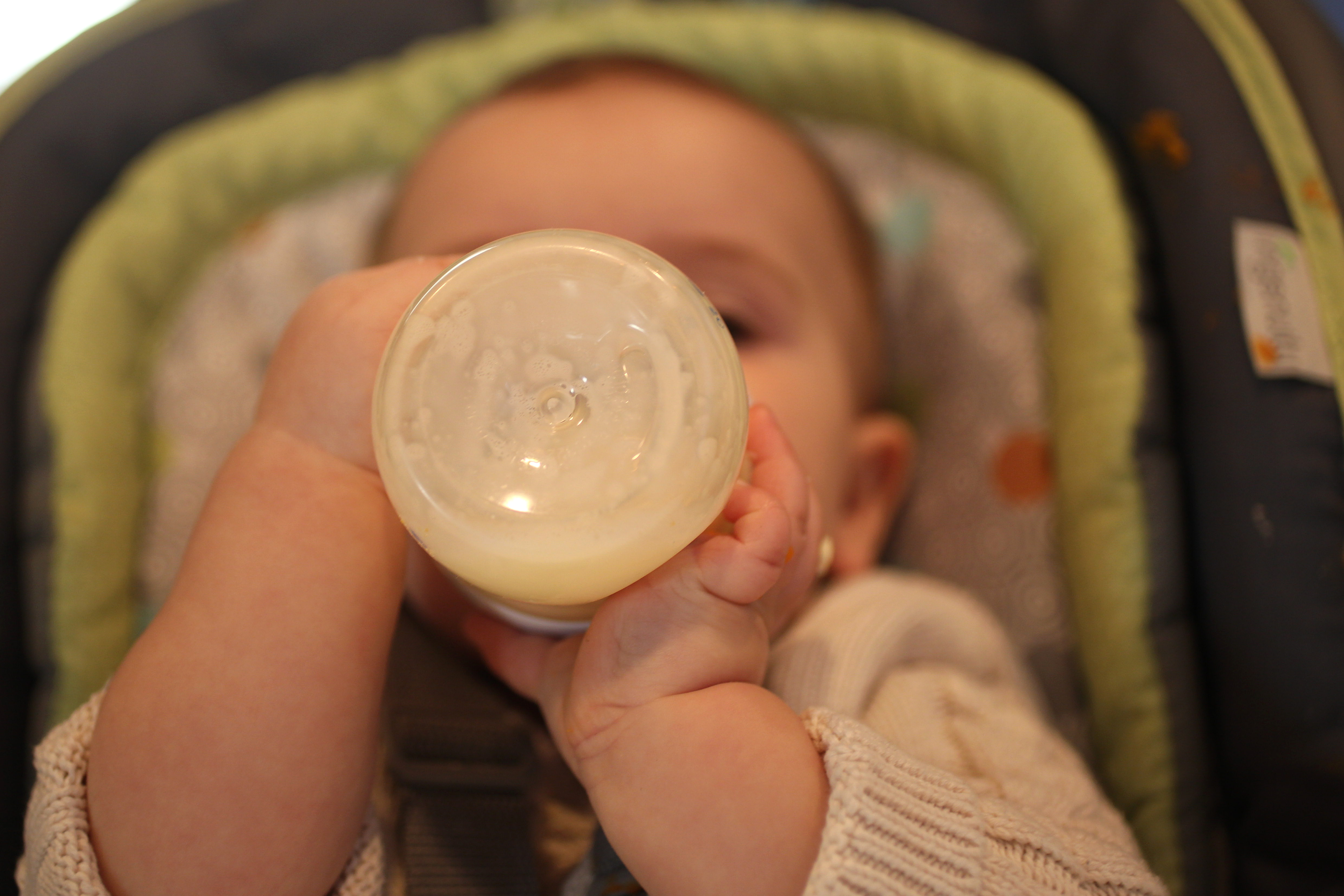The baby formula shortage in the U.S. is getting worse in some states, with many retailers now limiting sales per customer as they continue to struggle to restock store shelves.
CVS and Walgreens confirmed to NBC News that customers would be limited to three baby formula products per purchase in-store and online.
"Due to increased demand and various supplier challenges, infant and toddler formulas are seeing constraints across the country," Walgreens said in a statement to NBC News. "Similar to other retailers, we put into effect purchase limits of three per transaction on all infant and toddler formula to help improve inventory. We continue to work diligently with our supplier partners to best meet customer demands."
The New York Times reports that Target is also imposing purchase limitations on baby formulas, but only for online sales with no limits in-store. Costco has caps on formulas listed on its website.
So, what's causing the baby formula shortage and when can parents expect to see supply levels return to normal?
Why is there a baby formula shortage?
Ongoing supply-chain issues were exacerbated by a massive nationwide recall of formula produced at an Abbott Labs facility in Sturgis, Michigan. The plant, which was linked to a cluster of infant illnesses, including two deaths, was subsequently shut down by the Food and Drug Administration after federal safety inspectors found Abbott failed to maintain sanitary conditions and procedures at the facility.
The closure further compounded the nationwide shortage. Abbott, one of the country’s largest infant formula makers, said in a blog post published April 15 that it was working to increase production at its other facilities.
Analysis from Datasembly, a retail data firm, found that 31% of baby formula products were out of stock nationwide in early April, with seven states — Connecticut, Delaware, Montana, New Jersey, Rhode Island, Texas, and Washington — seeing out-of-stock rates at over 40%.
Manufacturers say production is at full capacity, but they are unable to keep up with current demand.
Get a weekly recap of the latest San Francisco Bay Area housing news. Sign up for NBC Bay Area’s Housing Deconstructed newsletter.
“Inflation, supply chain shortages, and product recalls have brought an unprecedented amount of volatility for baby formula,” Datasembly founder and CEO Ben Reich said in a news release. "We expect to continue to see the baby formula category being dramatically affected by these conditions."
More Baby Formula Coverage
Which baby formula brands were affected by the Abbott recall?
In February, Abbott recalled certain lots of Similac, Alimentum and EleCare with expiration dates of April 1, 2022, or later. The product was distributed throughout the U.S. and overseas, the company said in a statement.
Abbott said parents can identify the recalled products by examining the number on the bottom of each container. The affected formulas have a number starting with 22 through 37, contain K8, SH, or Z2 and have an expiration date of April 1, 2022 or later. The company has also setup a website here where parents can check if their products have been recalled.
The recall does not affect liquid infant formulas or any other Abbott products.
The recall came amid four reports infants who were hospitalized after consuming the formula produced at the Sturgis facility, including two who died. The agency said one of the cases involved salmonella and three involved Cronobacter sakazakiim, a rare but dangerous germ that can cause blood infections and other serious complications.
Last month, however, the FDA and Centers for Disease Control and Prevention told NBC News they were unable to find a match between the bacteria samples taken from two of the sickened infants and those taken from the Michigan plant. The agencies note that they couldn't obtain samples from the other two infected infants.
The company had previously said its own testing of finished product didn’t detect any contamination.
Baby formula brands covered by food stamp programs are in especially limited supply
The Abbott recall has been particularly hard-hitting for families who rely on public benefits such as the Special Supplemental Nutrition Program for Women, Infants and Children (WIC) because the company was the exclusive supplier for more than half of the WIC agencies nationwide, according to The New York Times.
The USDA granted a temporary waiver for WIC clients to obtain alternative brand options of baby formula, further compounding the supply chain issues as new pool of parents are now vying for what was already a limited supply of products.
What can parents do?
For parents desperate to secure a regular supply of baby formula for their children, and are having difficulty obtaining a single can, the Infant Nutrition Council of America advises that they contact their local food pantries, churches, shelters and hospital emergency rooms as they may provide small amounts of infant formula in emergency situations.
Parents can contact Feeding America or dial 2-1-1 to be connected to a community resource specialist who can help you find local resources.
If you have questions or concerns about feeding your infant, please contact your baby’s doctor. Pediatricians often have samples in their office and some have relationships with formula companies, and may be able to get parents special shipments, according to "TODAY."
Experts also warn parents against trying to make their own formula at home. Dr. Katie Lockwood, a pediatrician at Children’s Hospital of Philadelphia, told "TODAY" that baby formula is complex mix of "water and nutrients," and "having too much extra water can be very dangerous to some children’s brains — and having too little water can be dangerous."
"It’s really a delicate balance that’s best done by a chemist," she added.
The FDA warns parents against online recipes for baby formula, citing the possibility of “very serious health concerns” for the baby.



